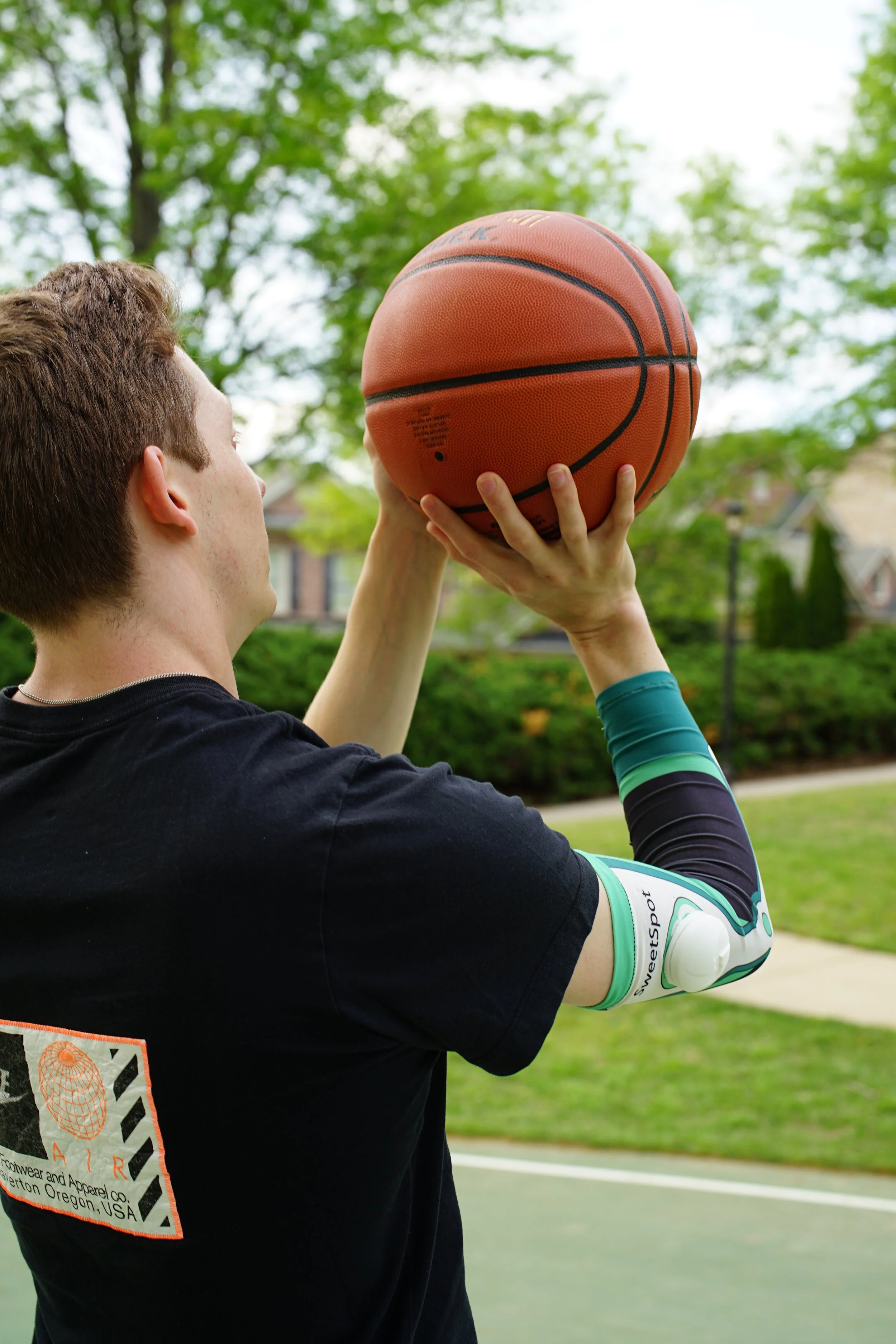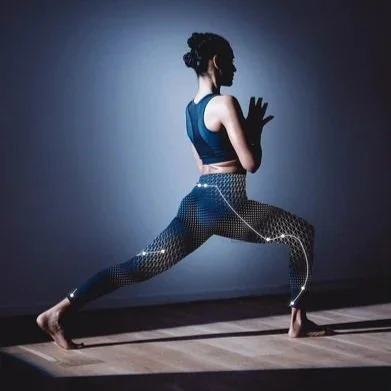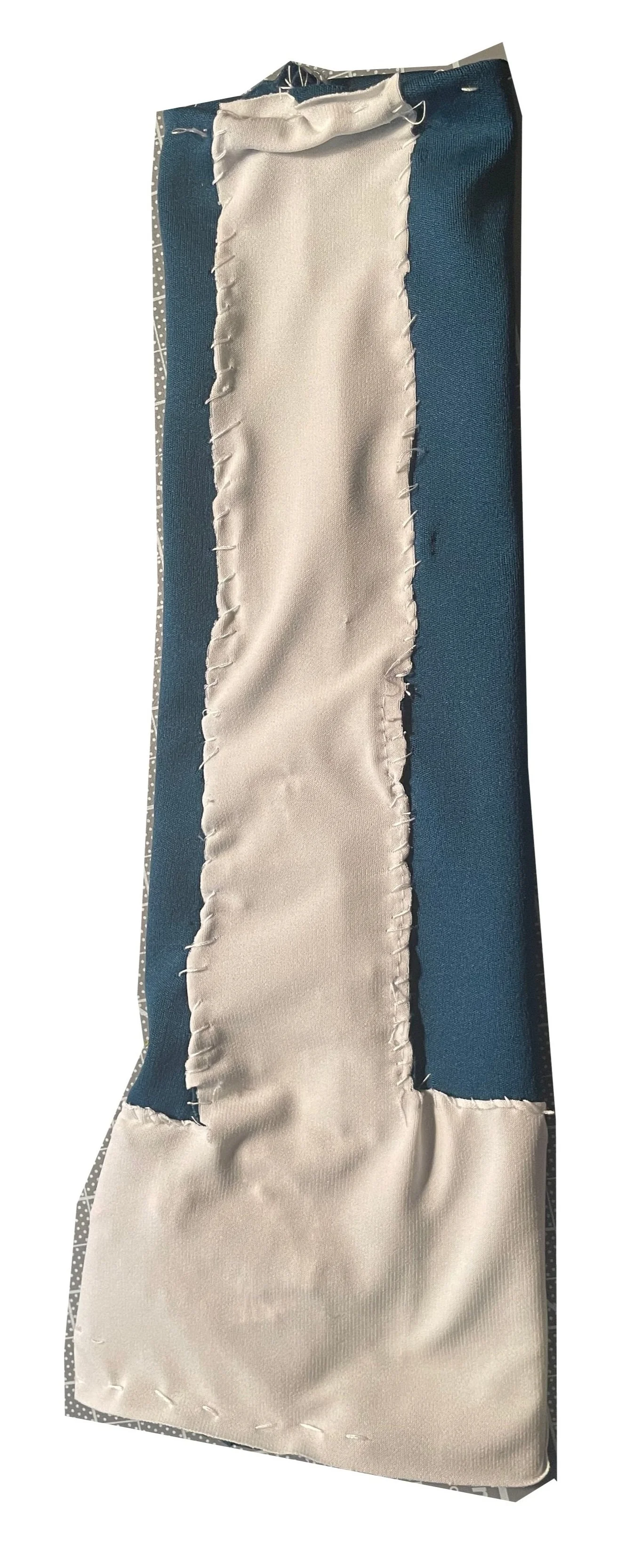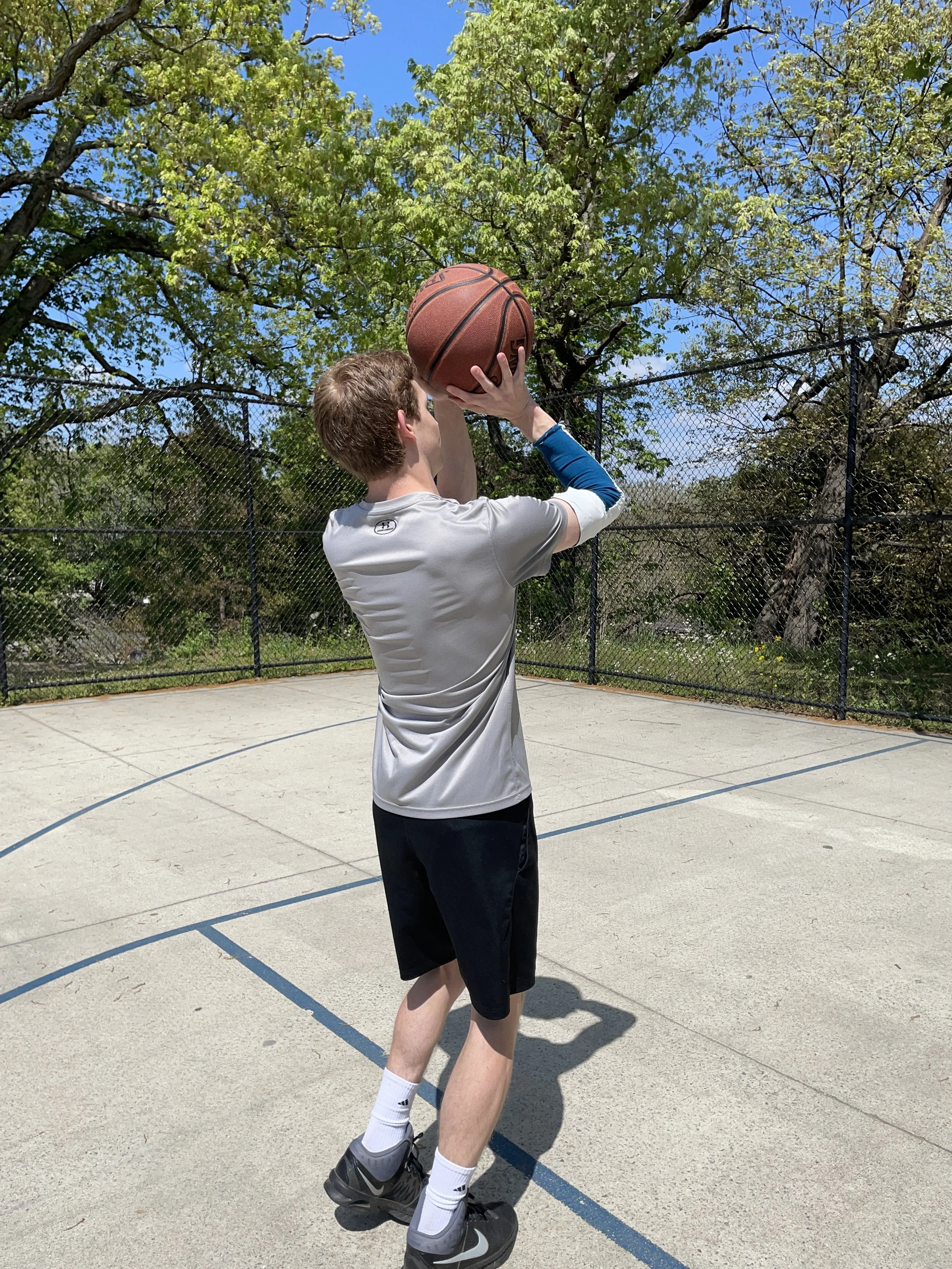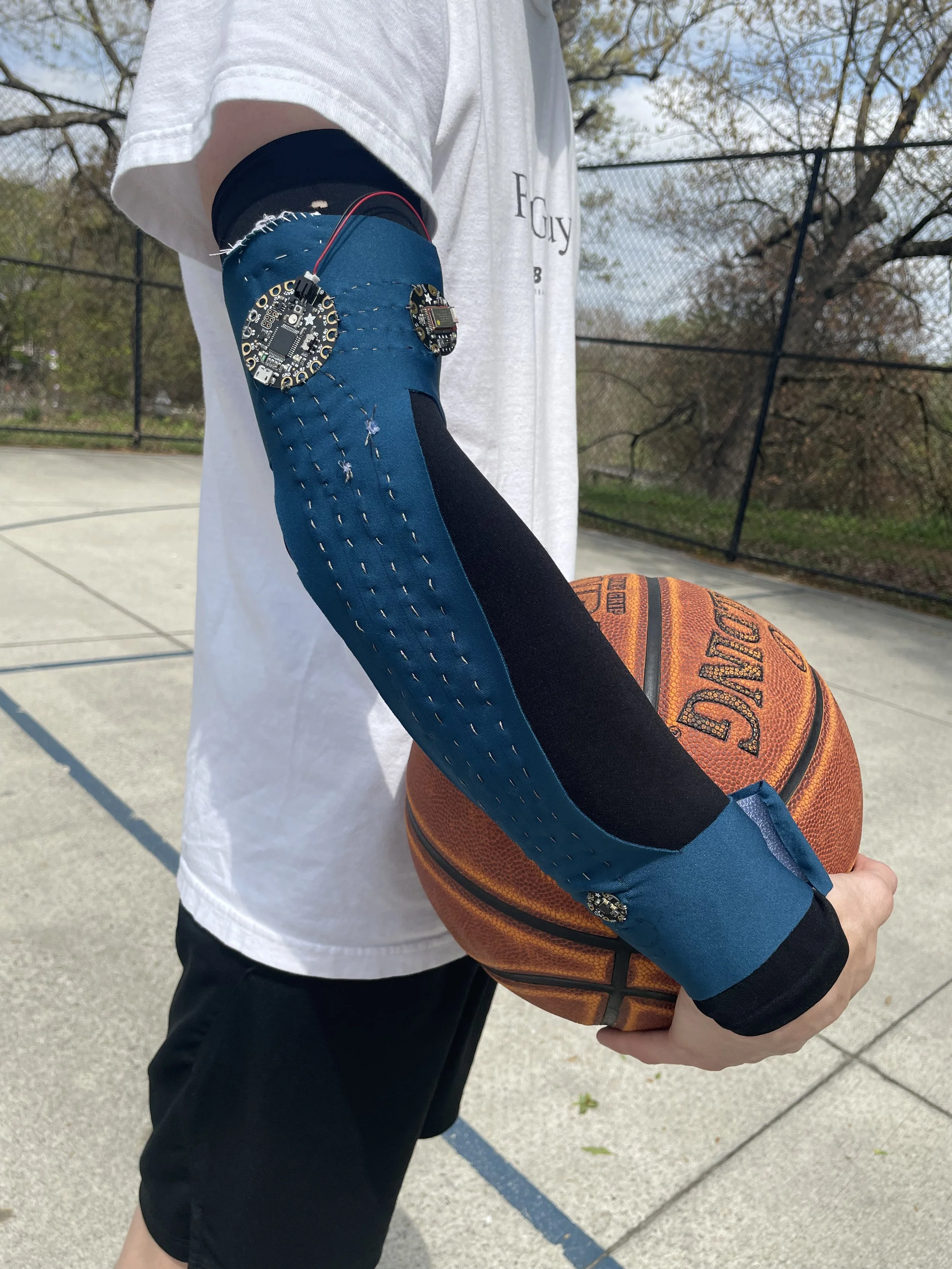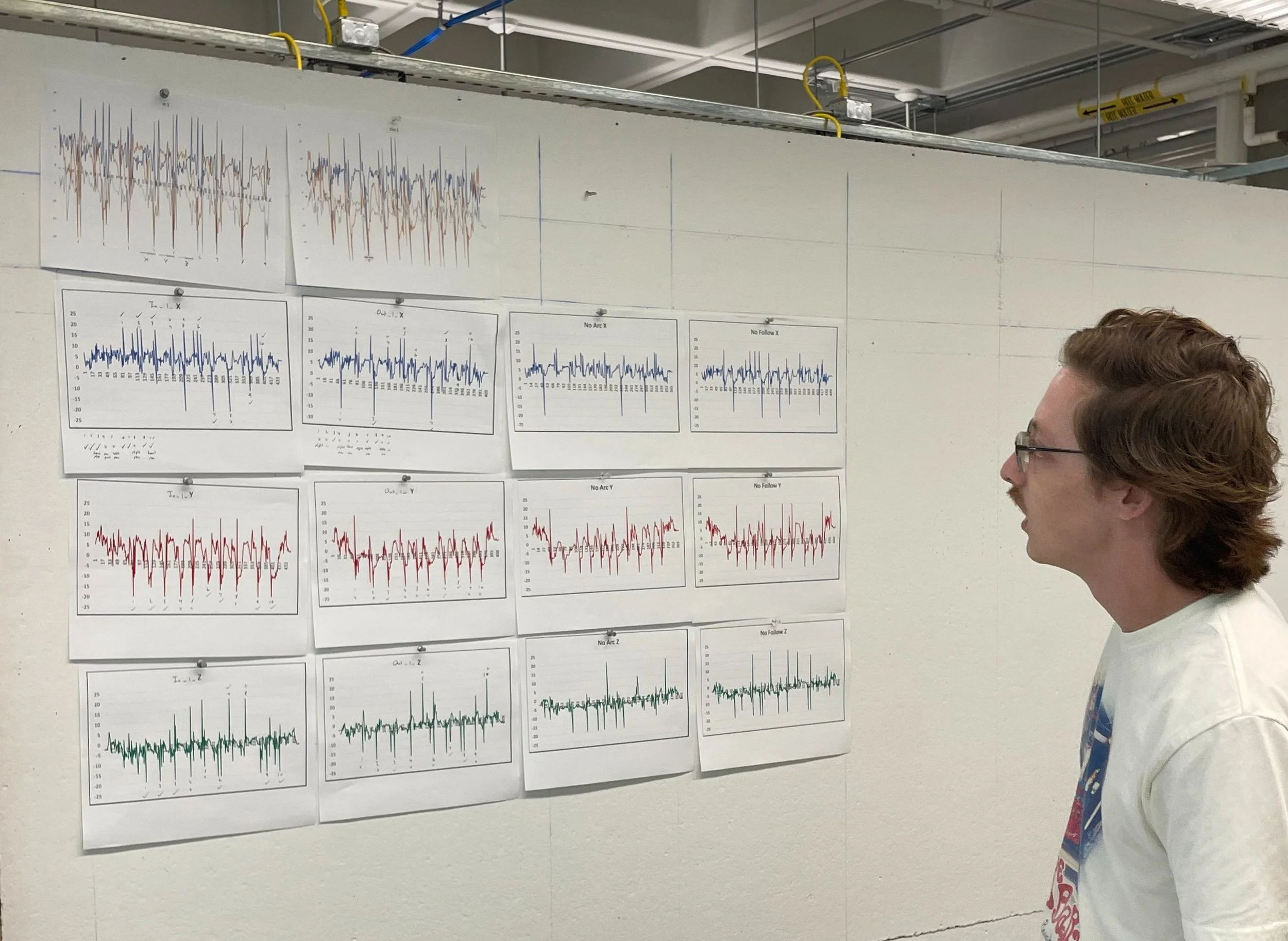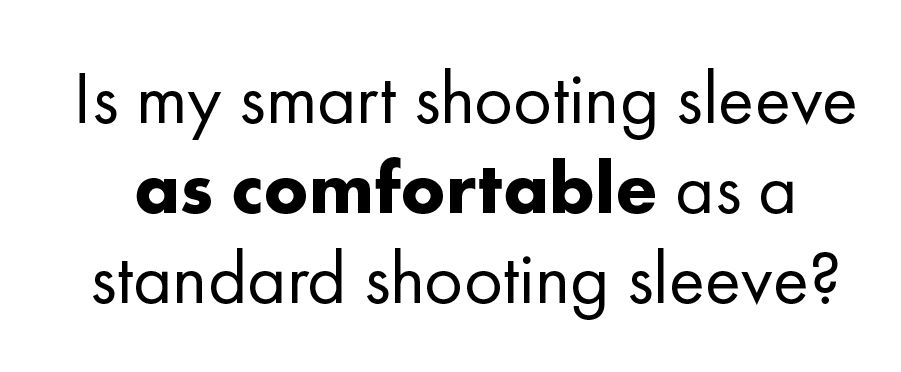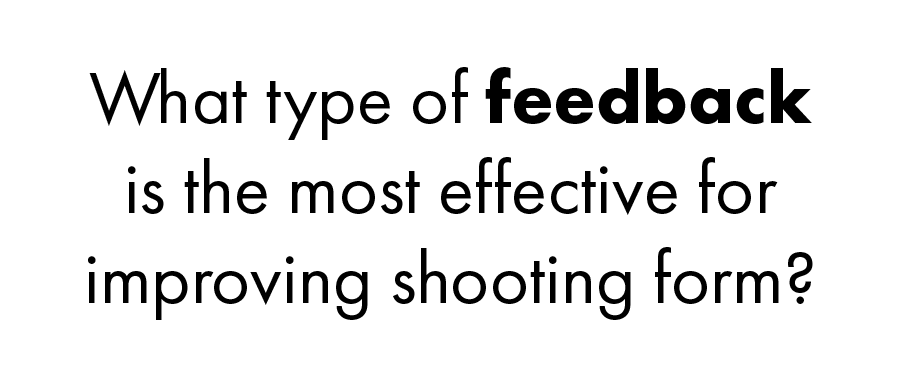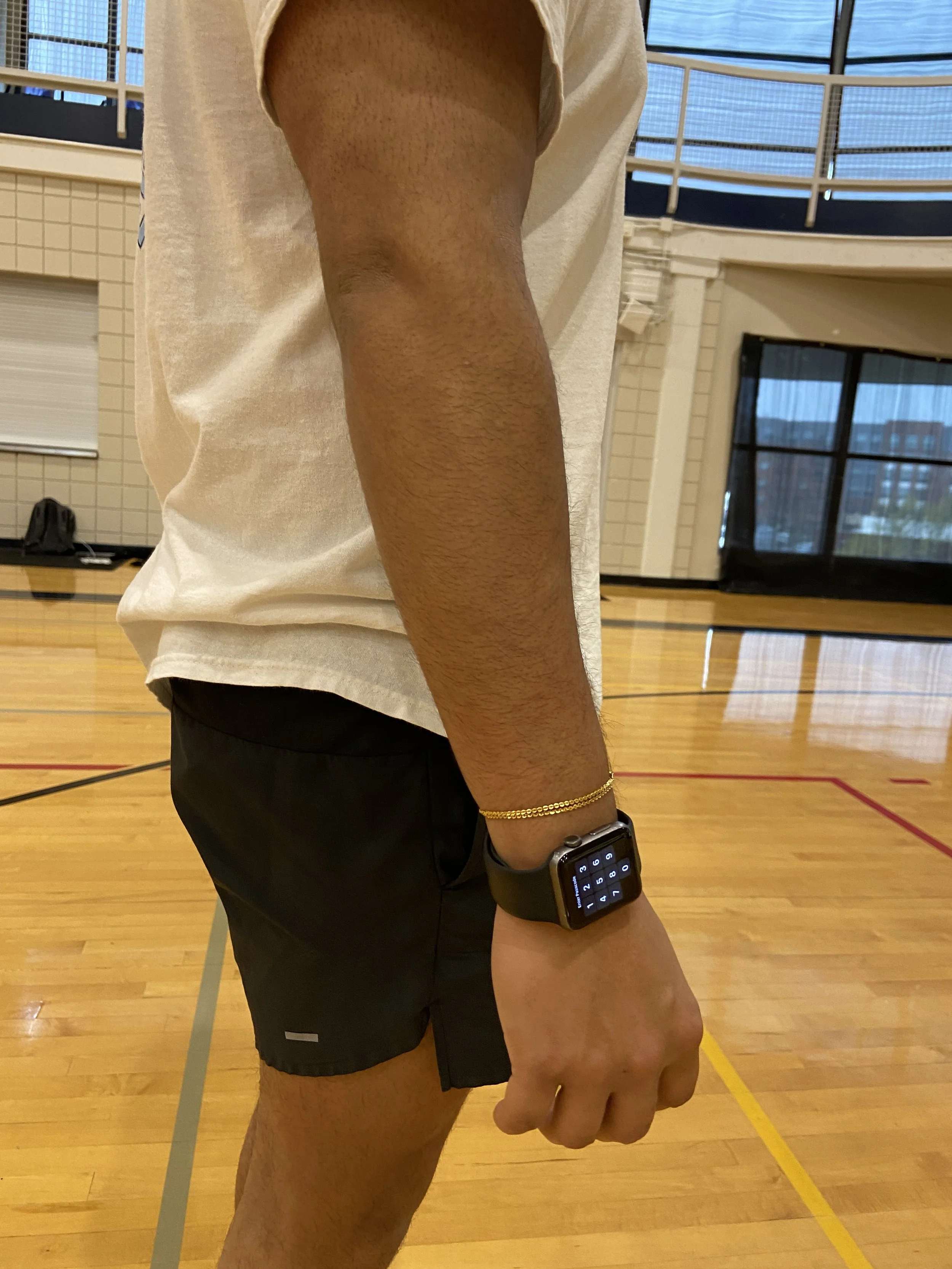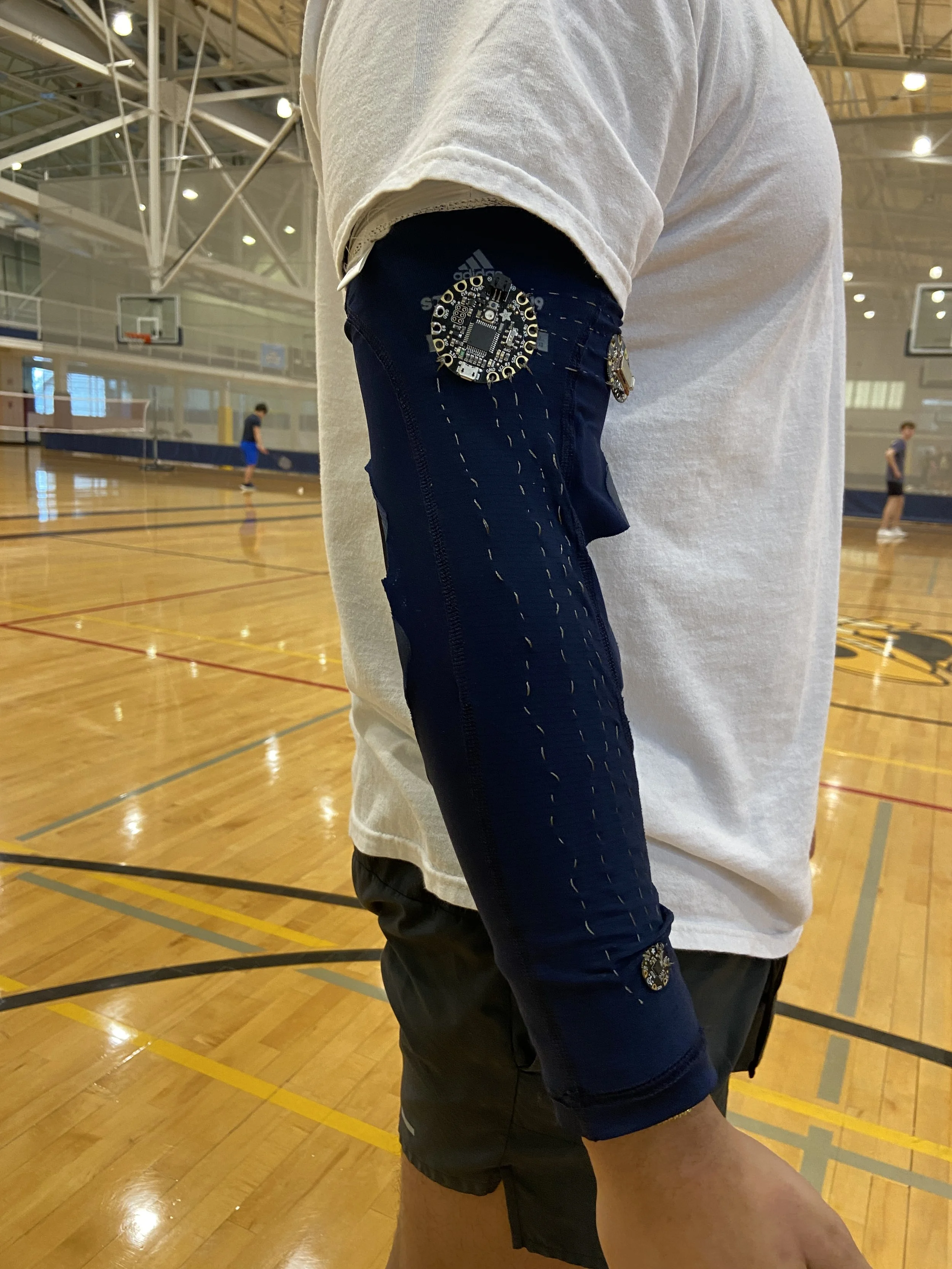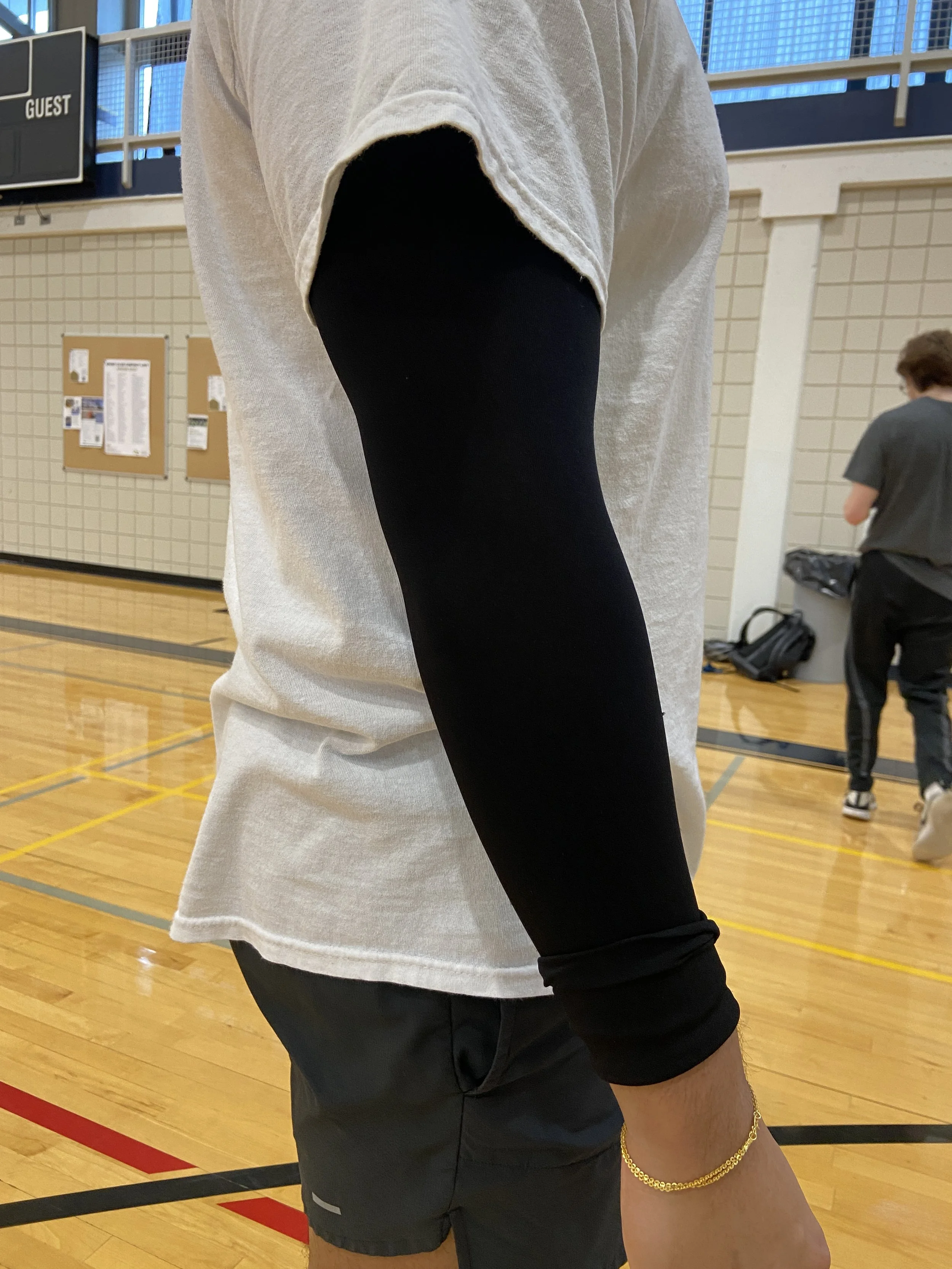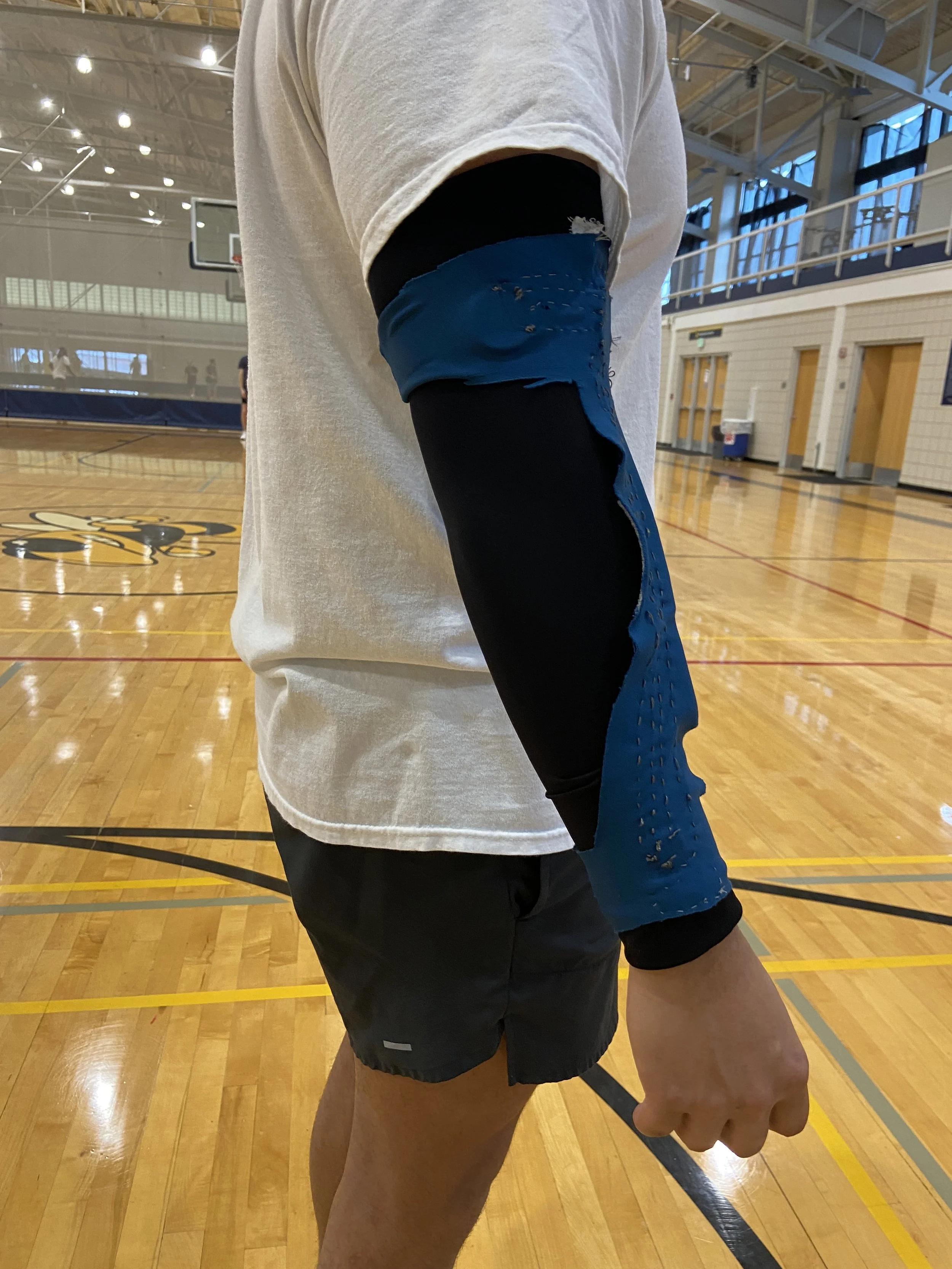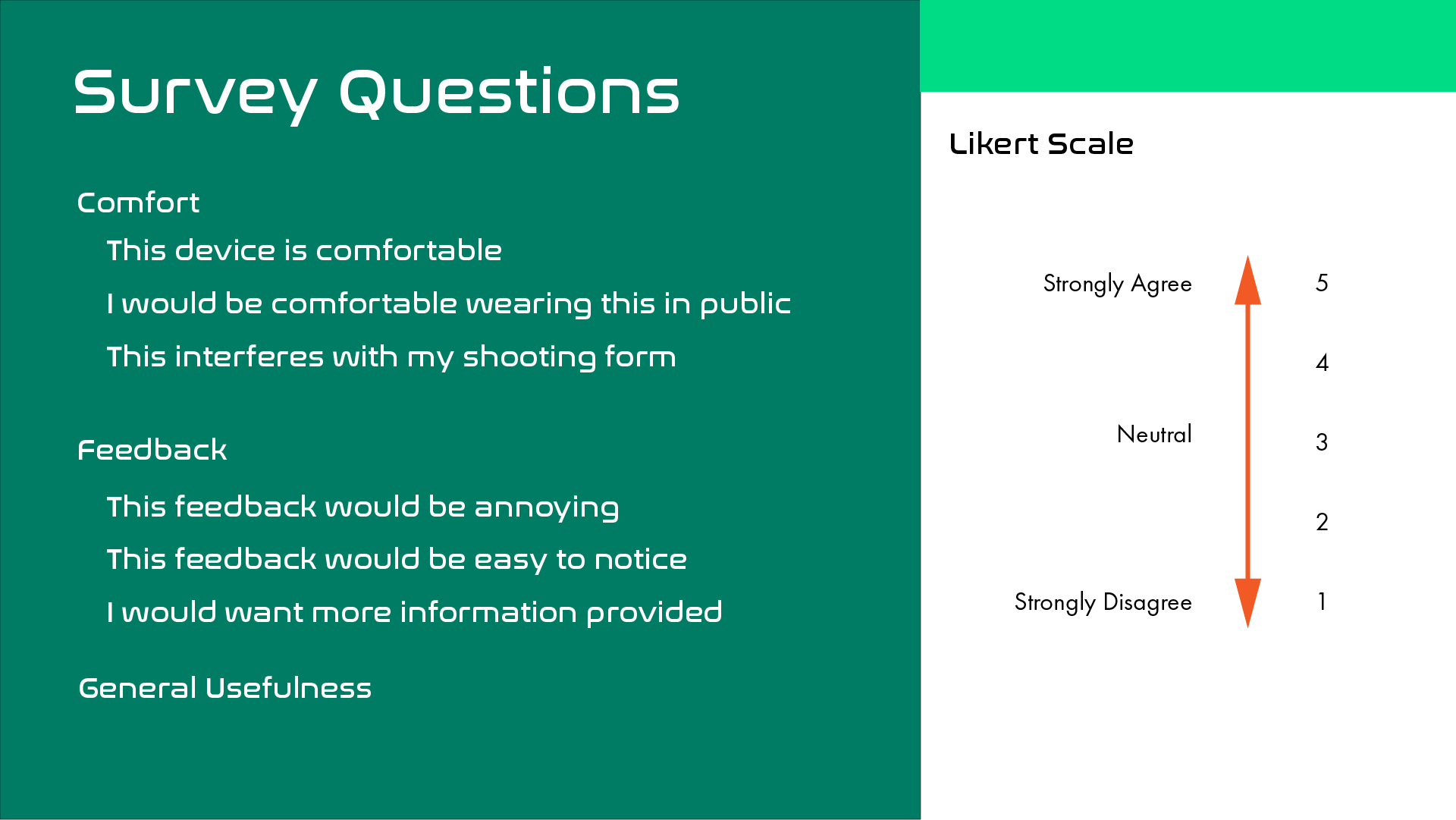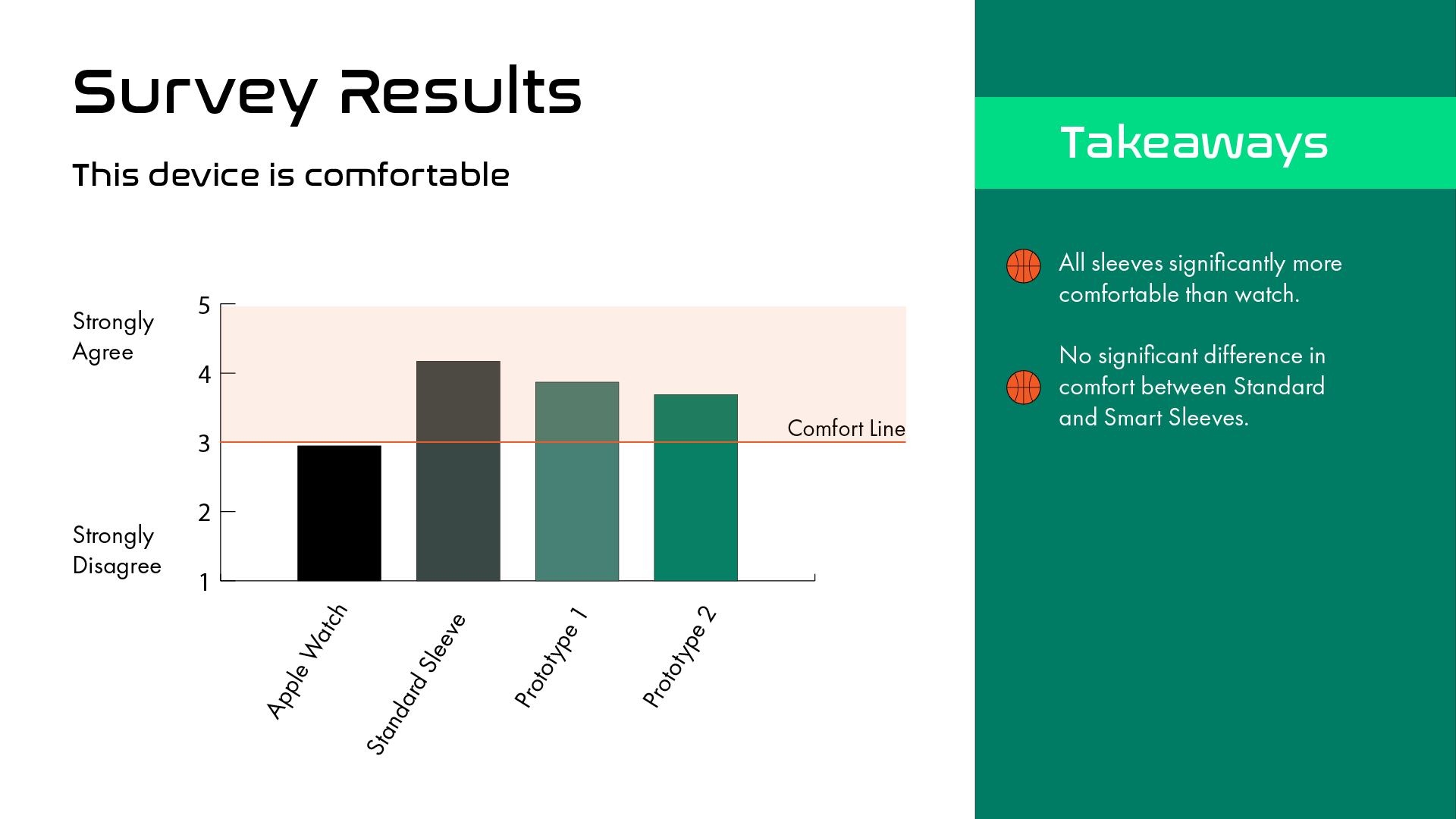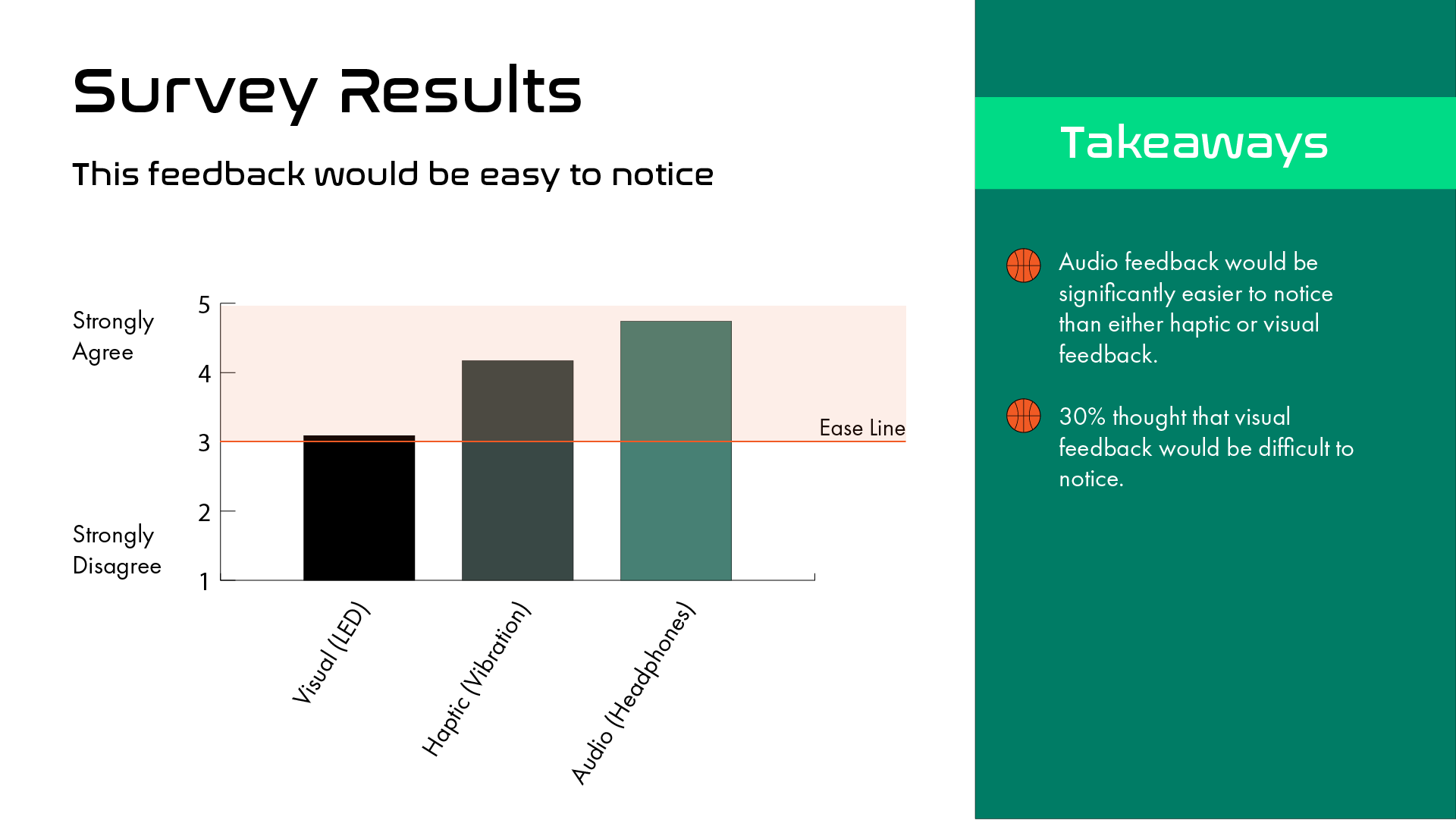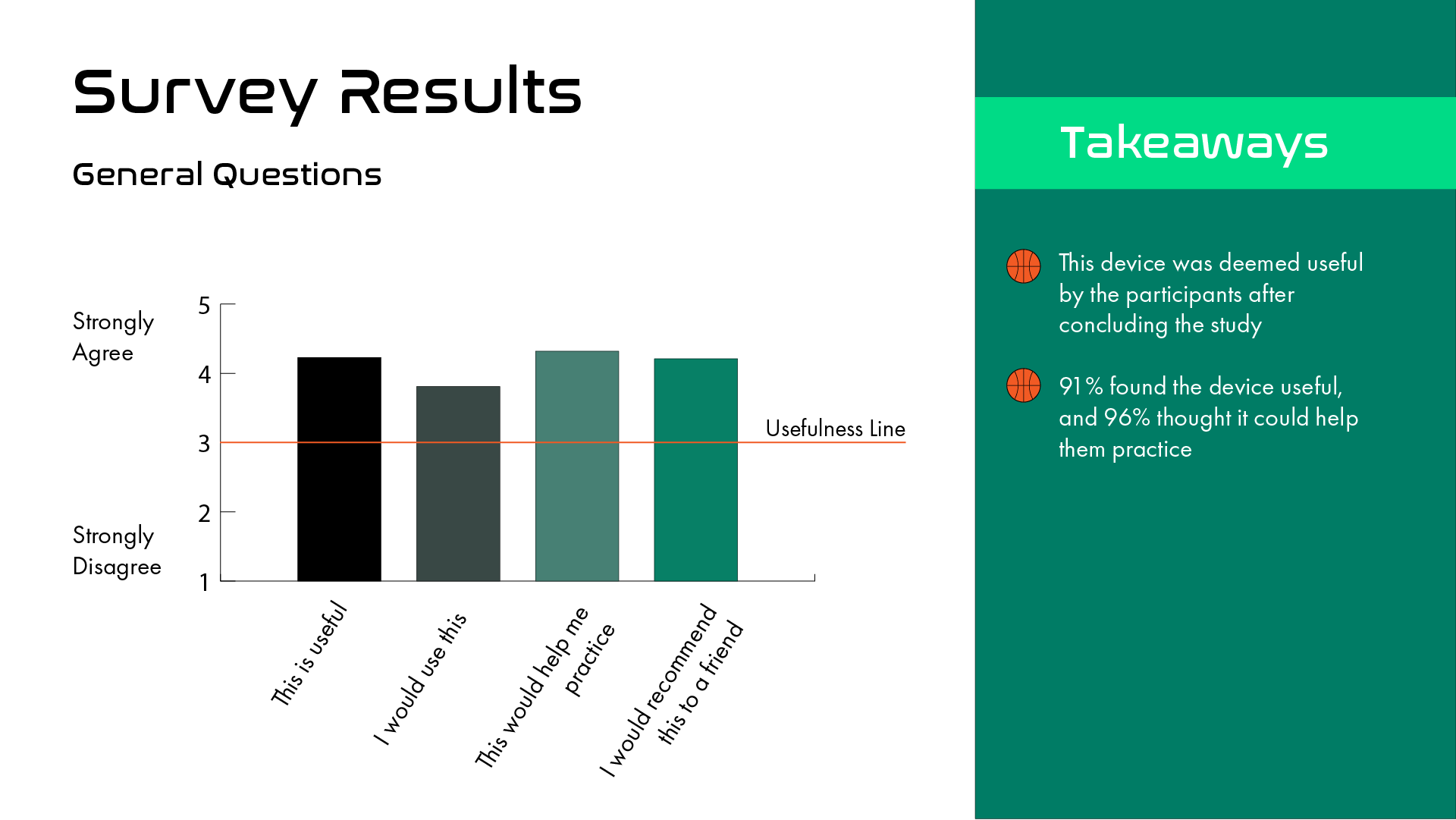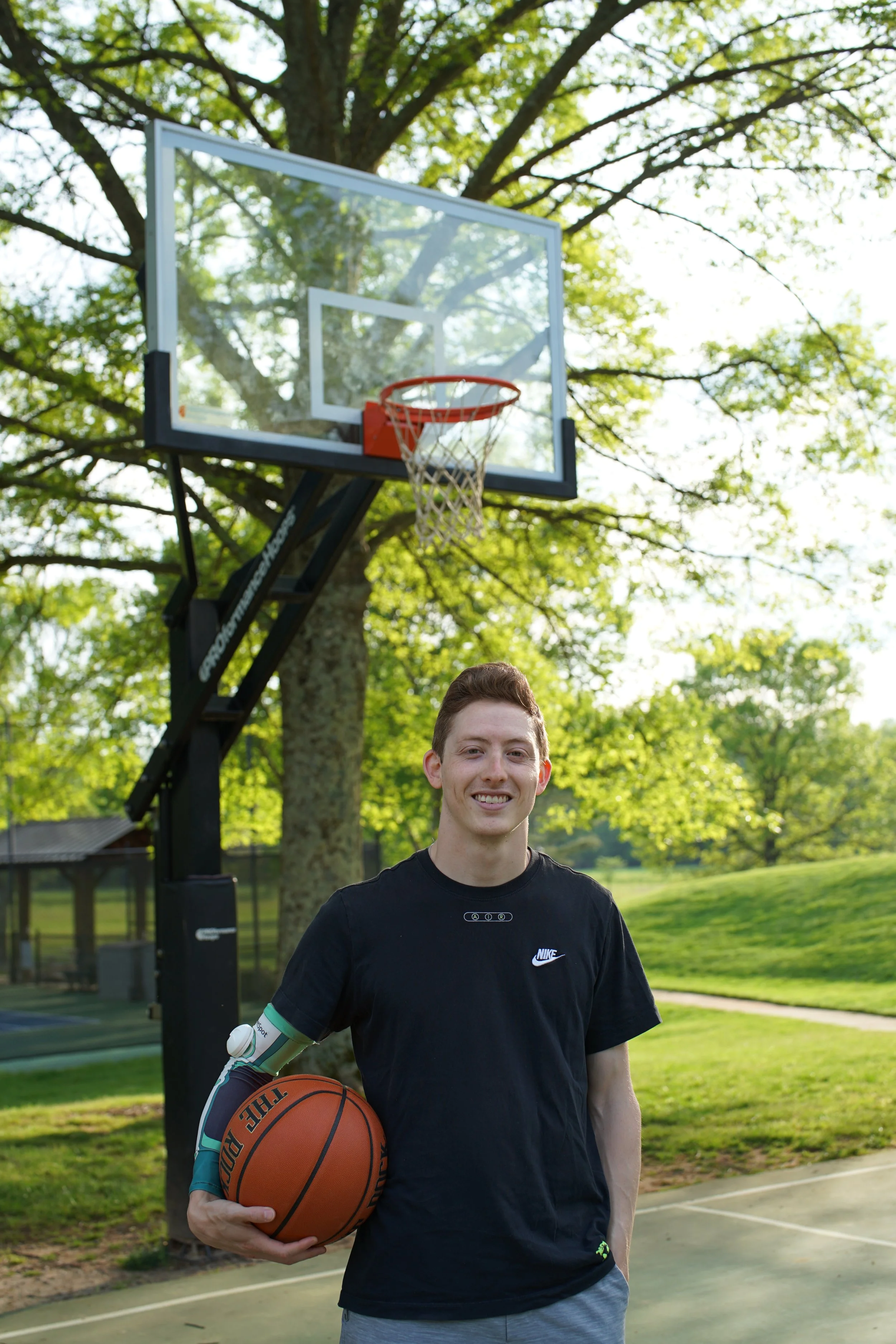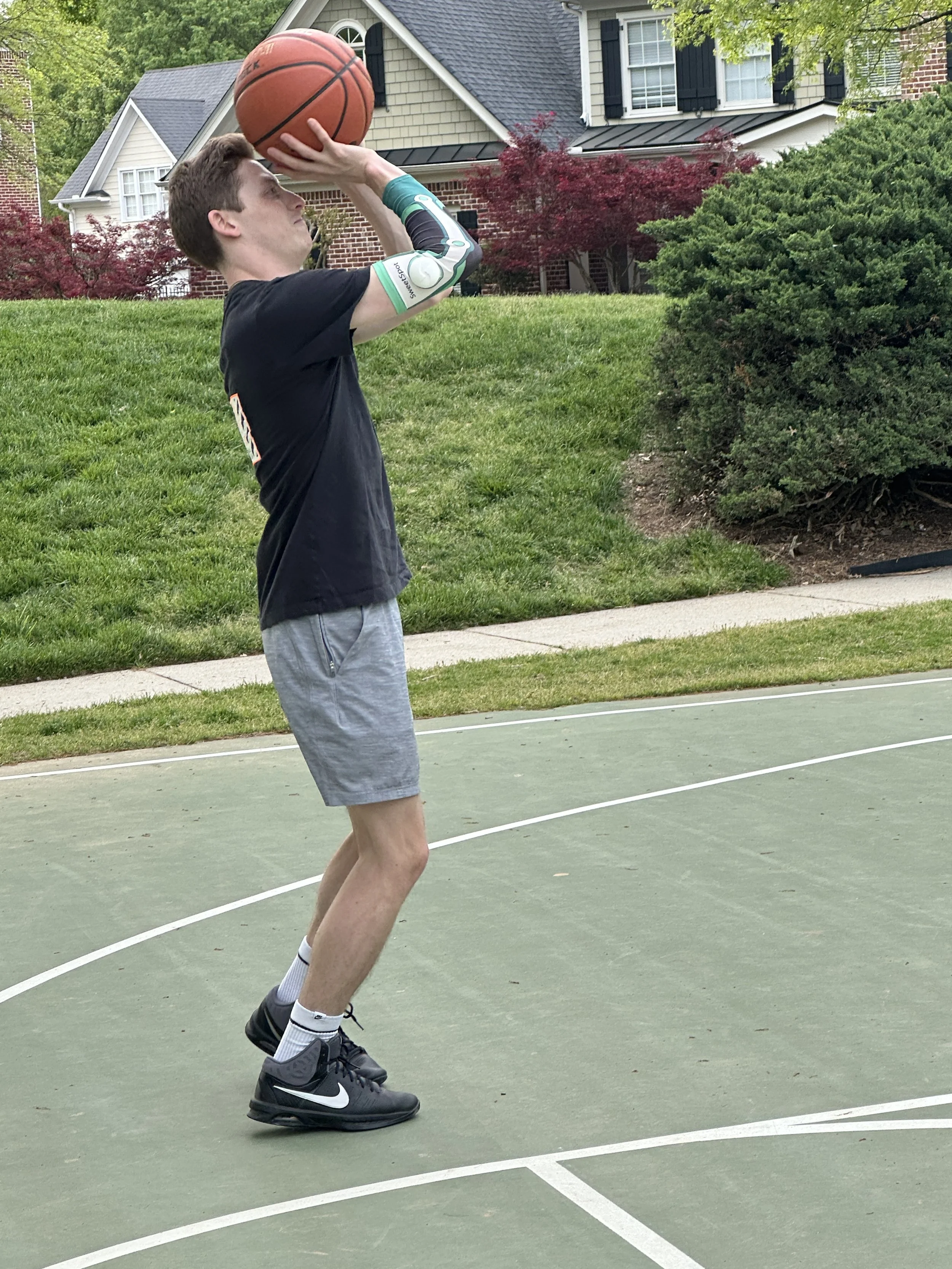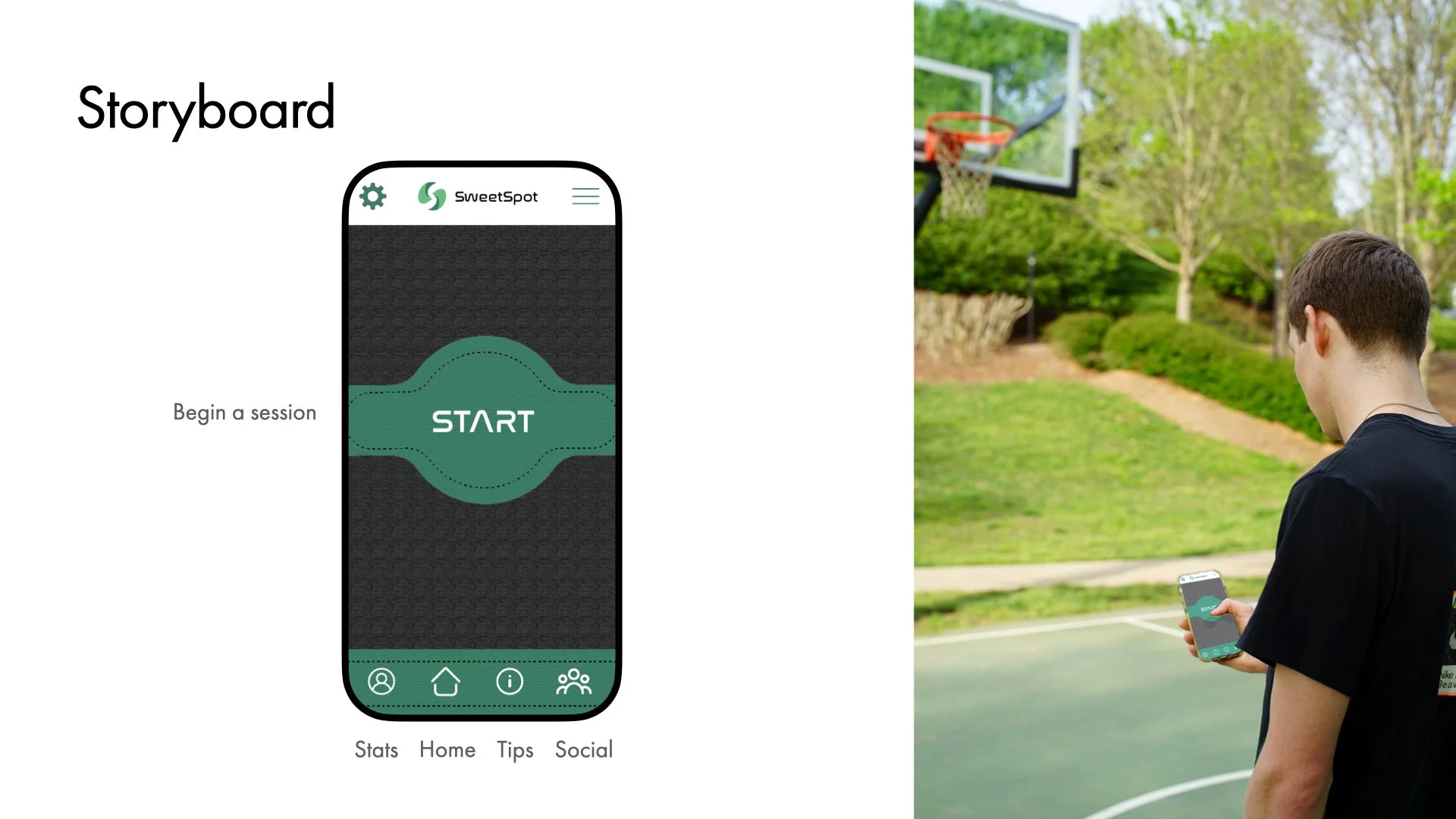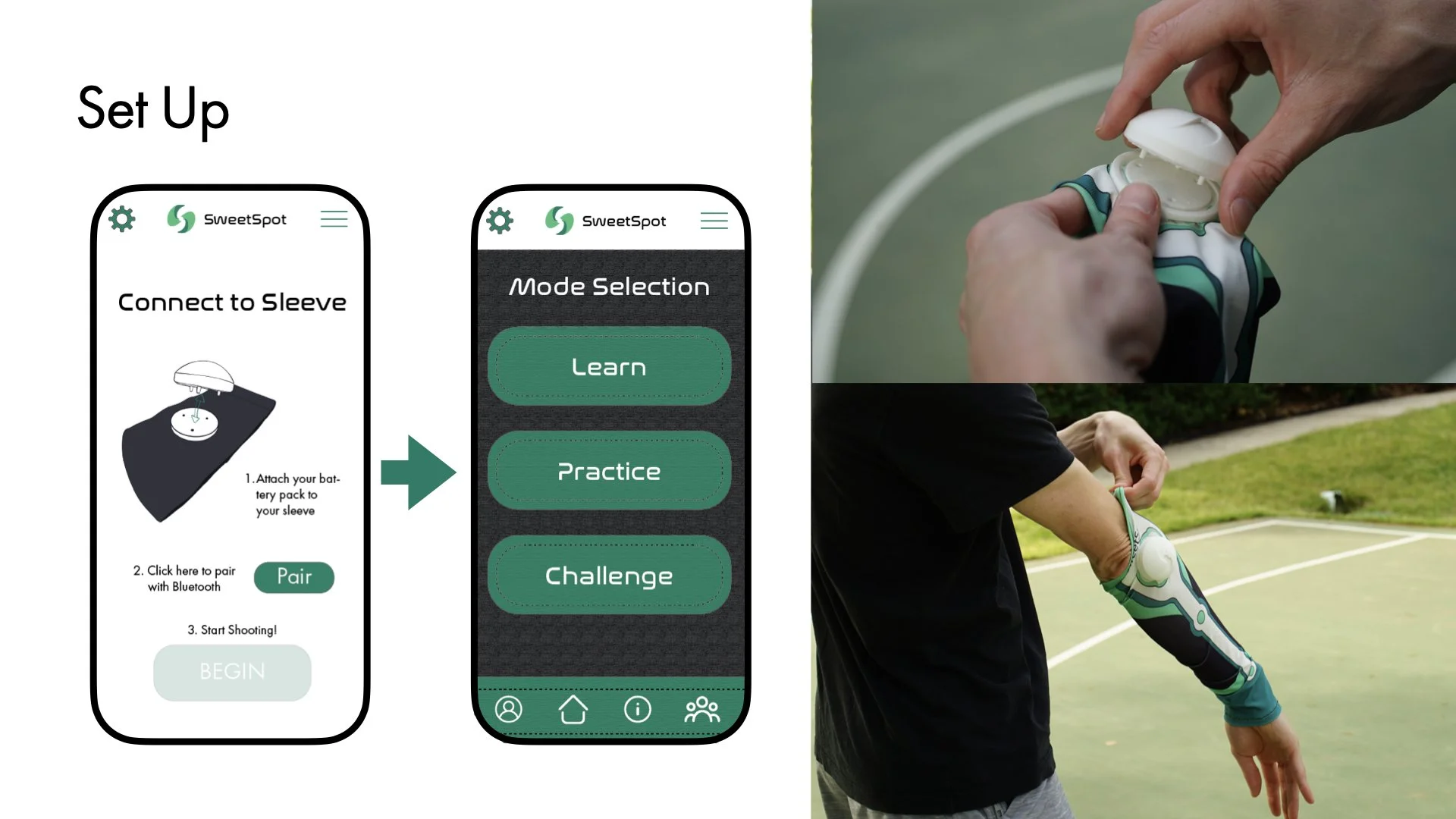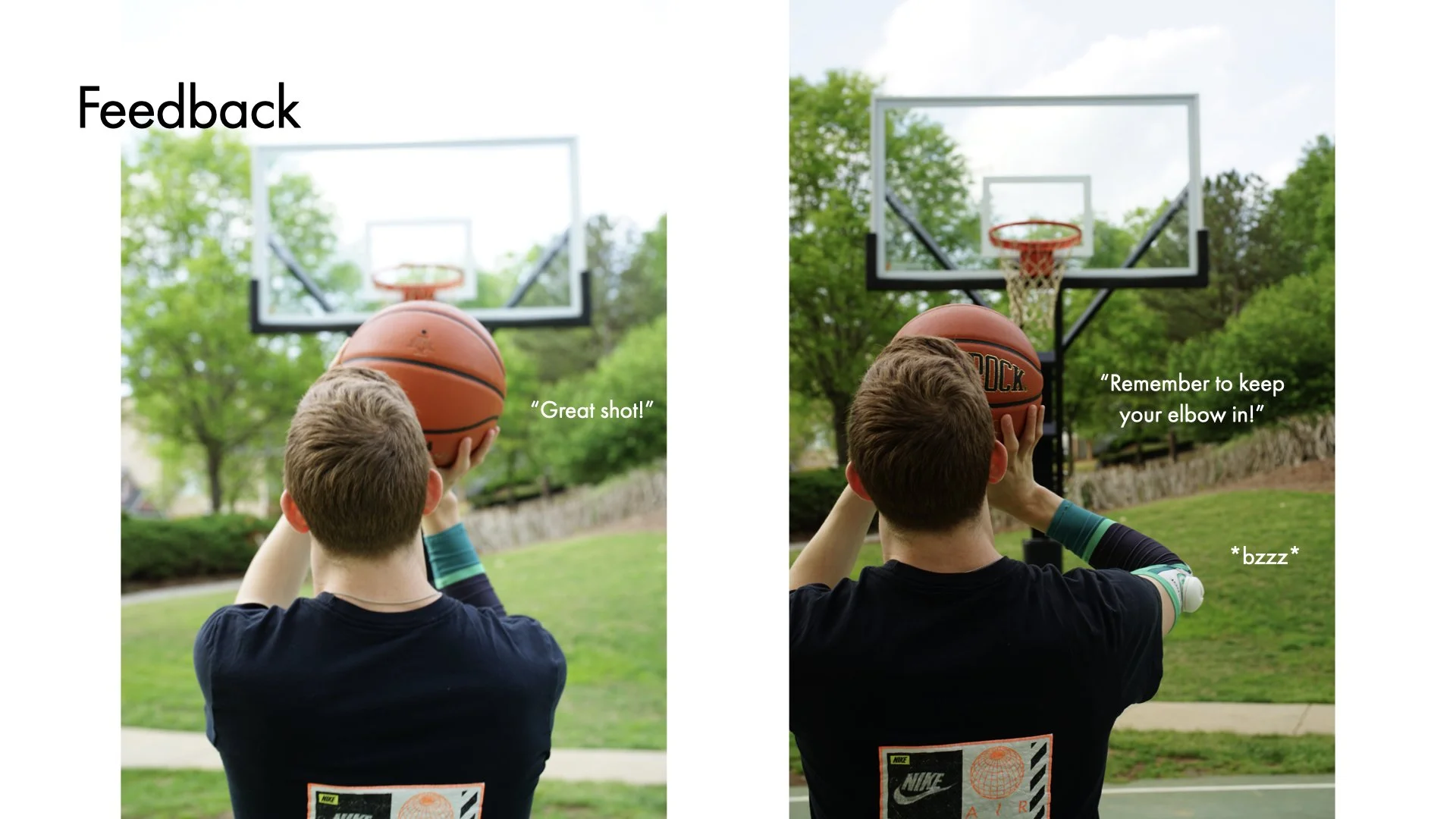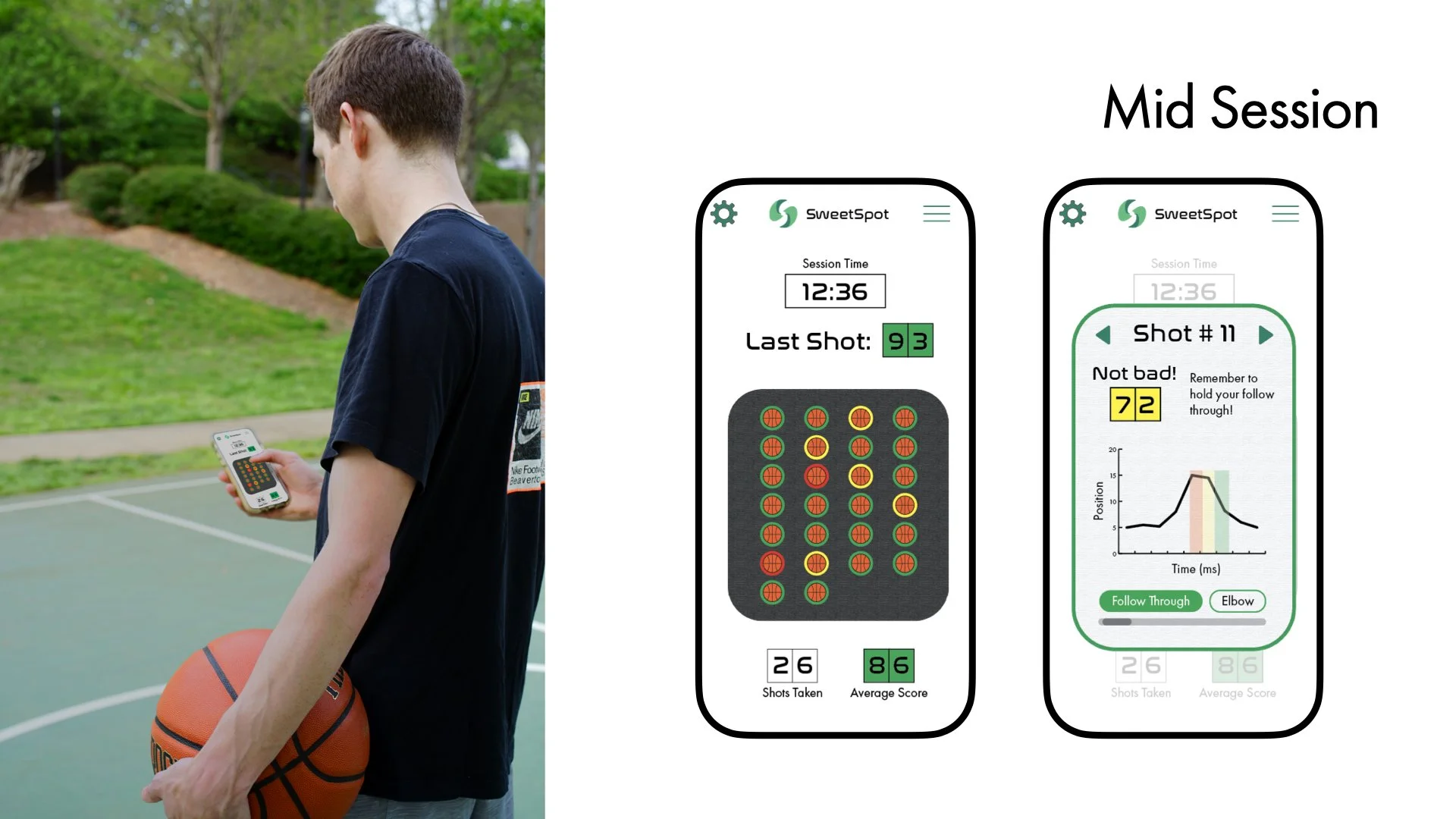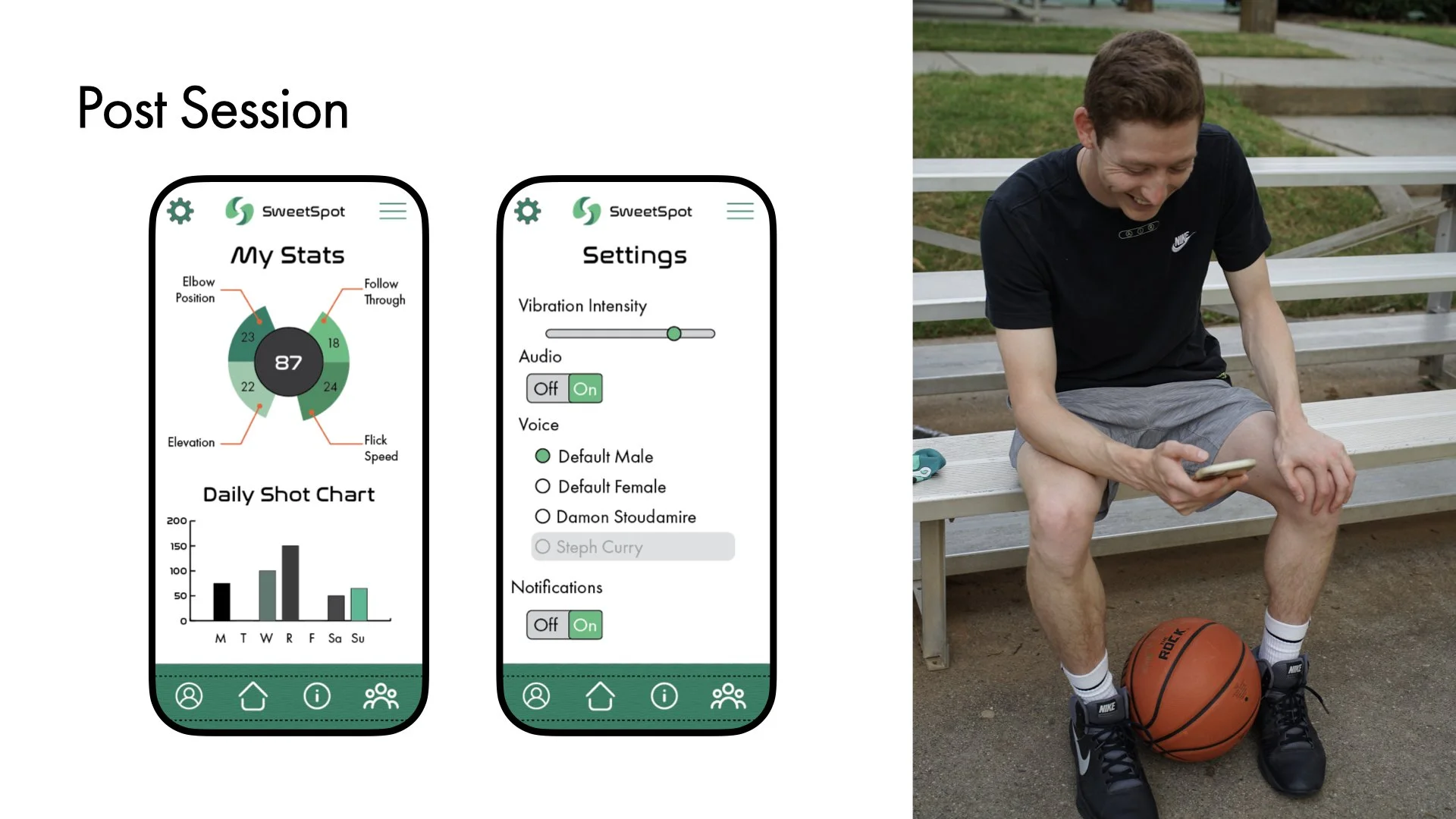Sweet Spot
A wearable device designed to improve free throw shooting form
Project Description
Sweet Spot was created as a part of my year-long Masters Thesis Project. The process involved many phases including background research, exploratory interviews, multiple rounds of prototyping, usability testing, data analysis, and technical writing. I was inspired to create a design that I was passionate about and represented the type of product I would like to continue to develop professionally.
Skills Used
Research
Observations, interviews, surveys
Prototyping
Soft Goods
Conductive Thread
Arduino
Usability Testing
It was my big chance. Half-time at the (sparsely attended) Georgia Tech vs East Tennessee State basketball game, and I was chosen to shoot a free throw for a shot at free pizza for a year. I had this. I was the 2004 Knights of Columbus Free Throw Champion, I could make one free throw. Or so I thought…
Humble Beginnings
It was clear that I needed some practice, but whatever I was doing wasn’t working. I needed a way to ensure I was shooting the right way every time. After all, the great Michael Jordan once said…
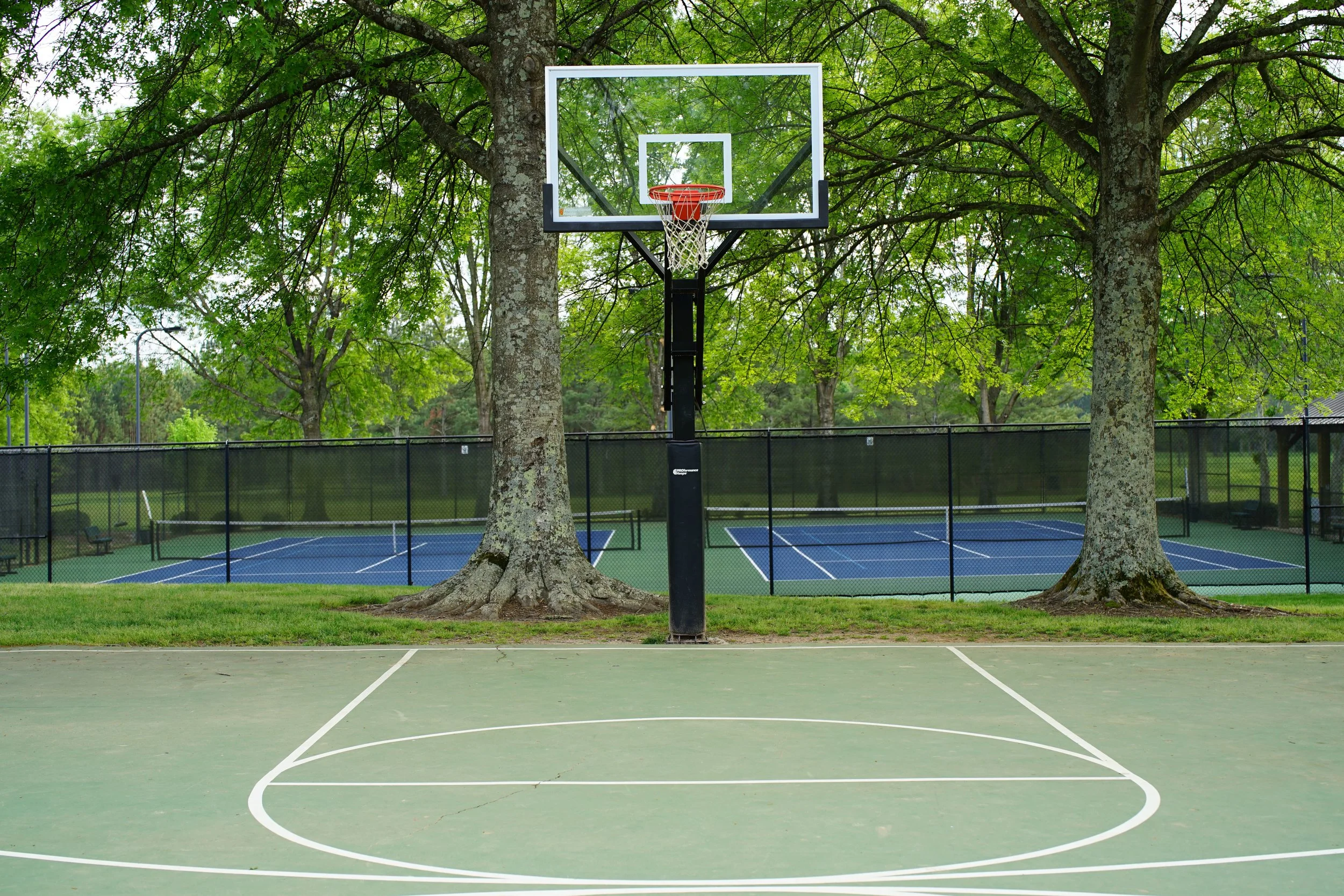
“You can practice shooting eight hours a day, but if your technique is wrong, then all you become is very good at shooting the wrong way.”
From here, I was inspired to create
Sweet Spot
Sweet Spot is a fully integrated smart shooting sleeve that tracks your shooting form and delivers real-time feedback to help improve your shot.
Research
To begin my design process, I researched other ways basketball shooting form has been tracked and analyzed. What I found were numerous studies using wrist-worn inertial measurement units (IMUs) which were effective in characterizing shooting motion, but appeared to be bulky and cumbersome. I also found a lack in data detailing which forms of feedback would be the most effective in improving shooting form.
I was drawn towards e-textiles, such as the Wearable X yoga pants shown on the right, as they could seamlessly integrate smart technology into the attire athletes are already accustomed to wearing.
Research Study Example (Andreu, 2021)
Wearable X Yoga Pants
Prototypes
Looking at available technology and the gear currently used by basketball players, I decided on developing a device that could be worn directly on the shooting arm. I hypothesized that having technology integrated directly into a shooting sleeve would allow for a more comfortable experience for the user.
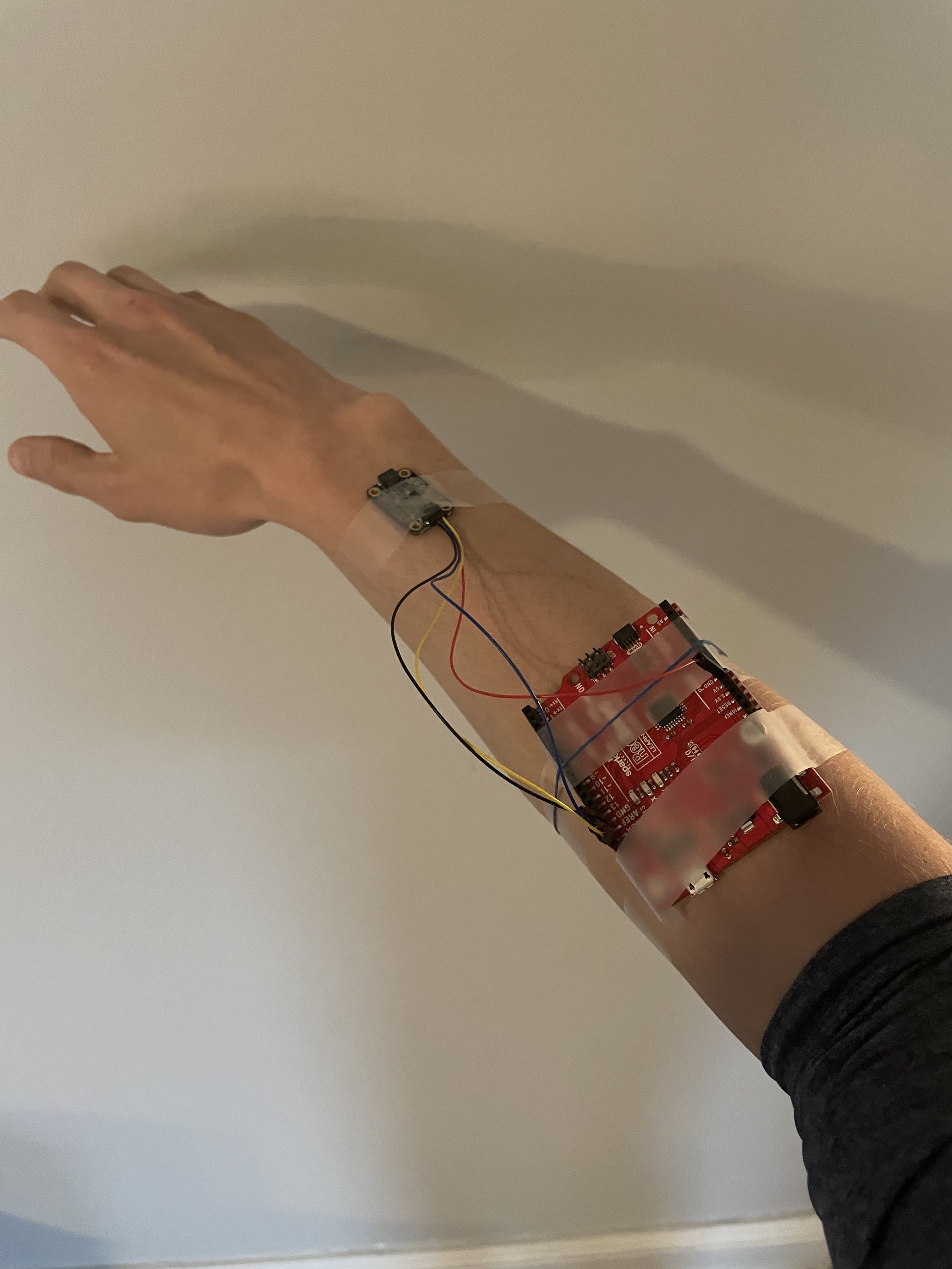

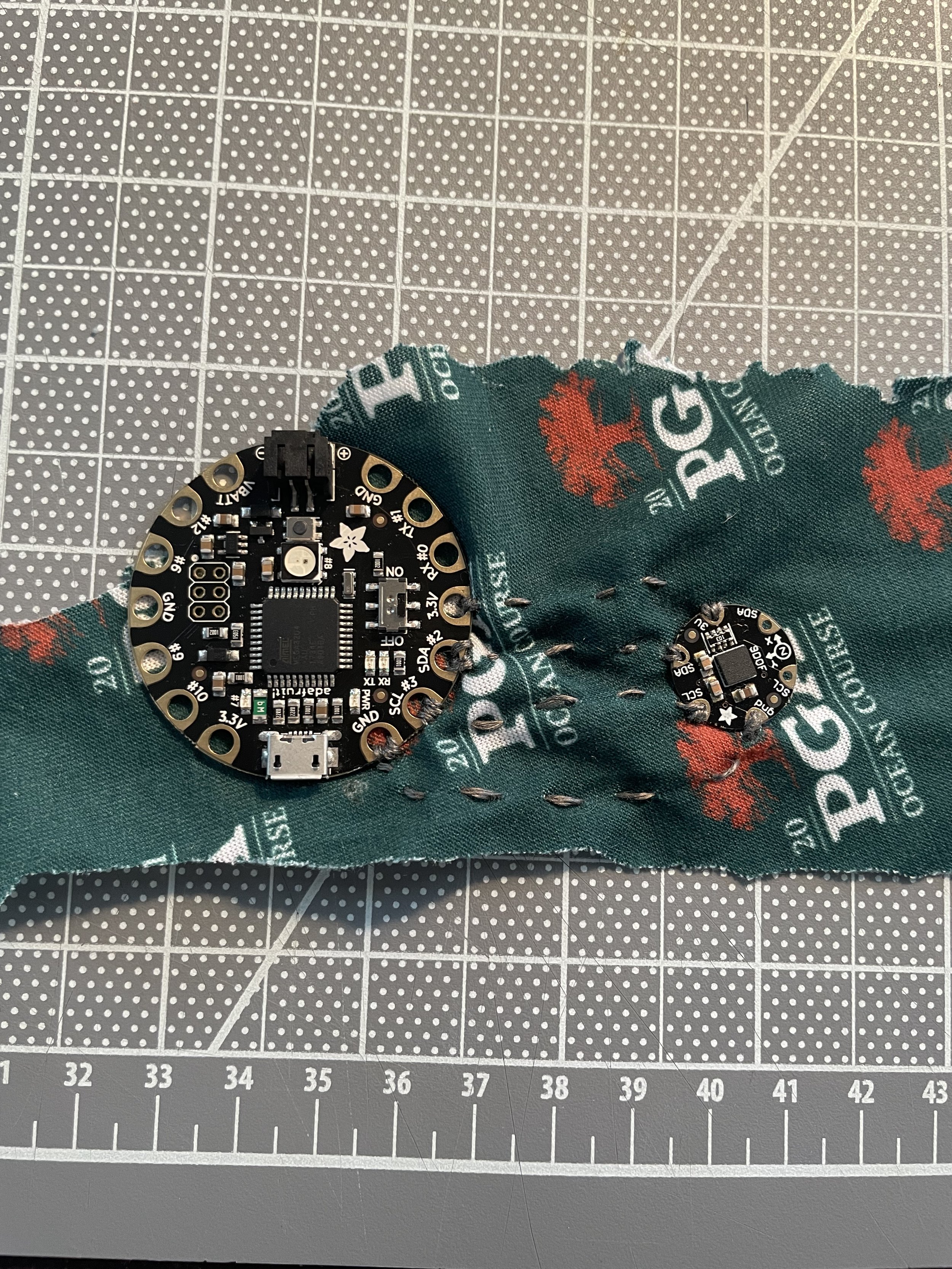
Hardware
Full Sleeve
Early prototypes for the SweetSpot sleeve started with taping an Arduino to my arm, and progressed to the eventual use of conductive thread sewn directly into a polyester sleeve.
Final components included:
Flora Board with built in LED to process data and provide feedback
Flora 9DOF IMU to capture arm motion data
Bluetooth Module to send data directly to phone
LiPo Battery to provide a rechargeable power source
BEEF
BEEF
Now that I knew how I would track the user’s shooting motion, the next step was to understand how to use this motion data to improve shooting form. But what is “good” shooting form? The age-old acronym, BEEF, felt like a good place to start.
B - Balance
E - Eyes on the Basket
E - Elbow Straight
F - Follow Through
Elbow Sensor
Elbow In
Elbow Sensor
Elbow Out
Wrist Sensor
Elbow In
With functional prototypes and a framework for the components of good shooting form, I took to the gym to collect data on different types of shots and sensor placements.
What I found was a significant difference in acceleration data between shots with my elbow in and my elbow out, specifically with the motion sensor placed on my wrist.
User Testing
Now that I had a prototype that could recognize proper shooting form, it was time to test on actual basketball players. There were 3 key questions I wanted to answer…
Apple Watch
Haptic Prototype
Standard Sleeve
Visual Prototype
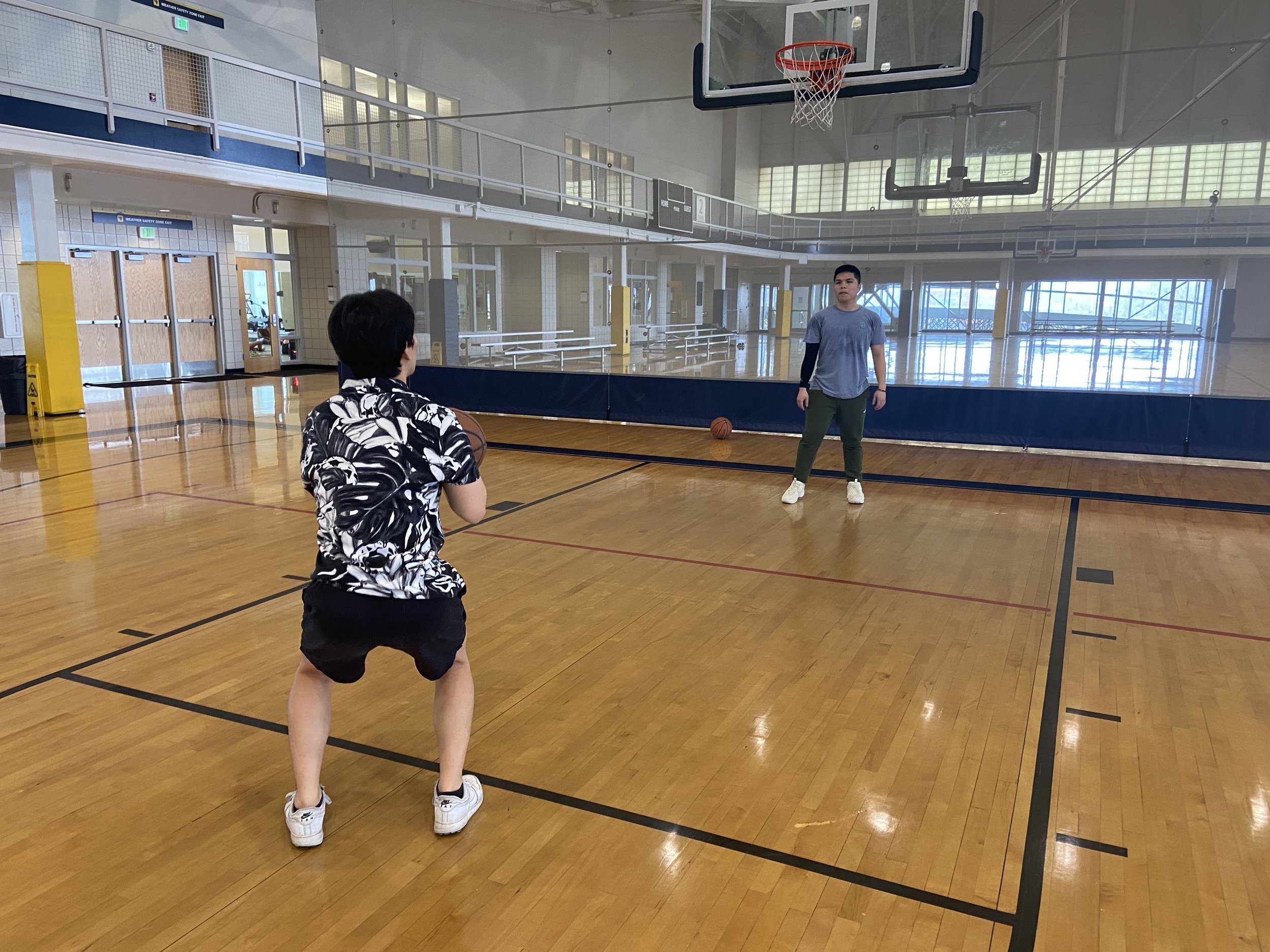
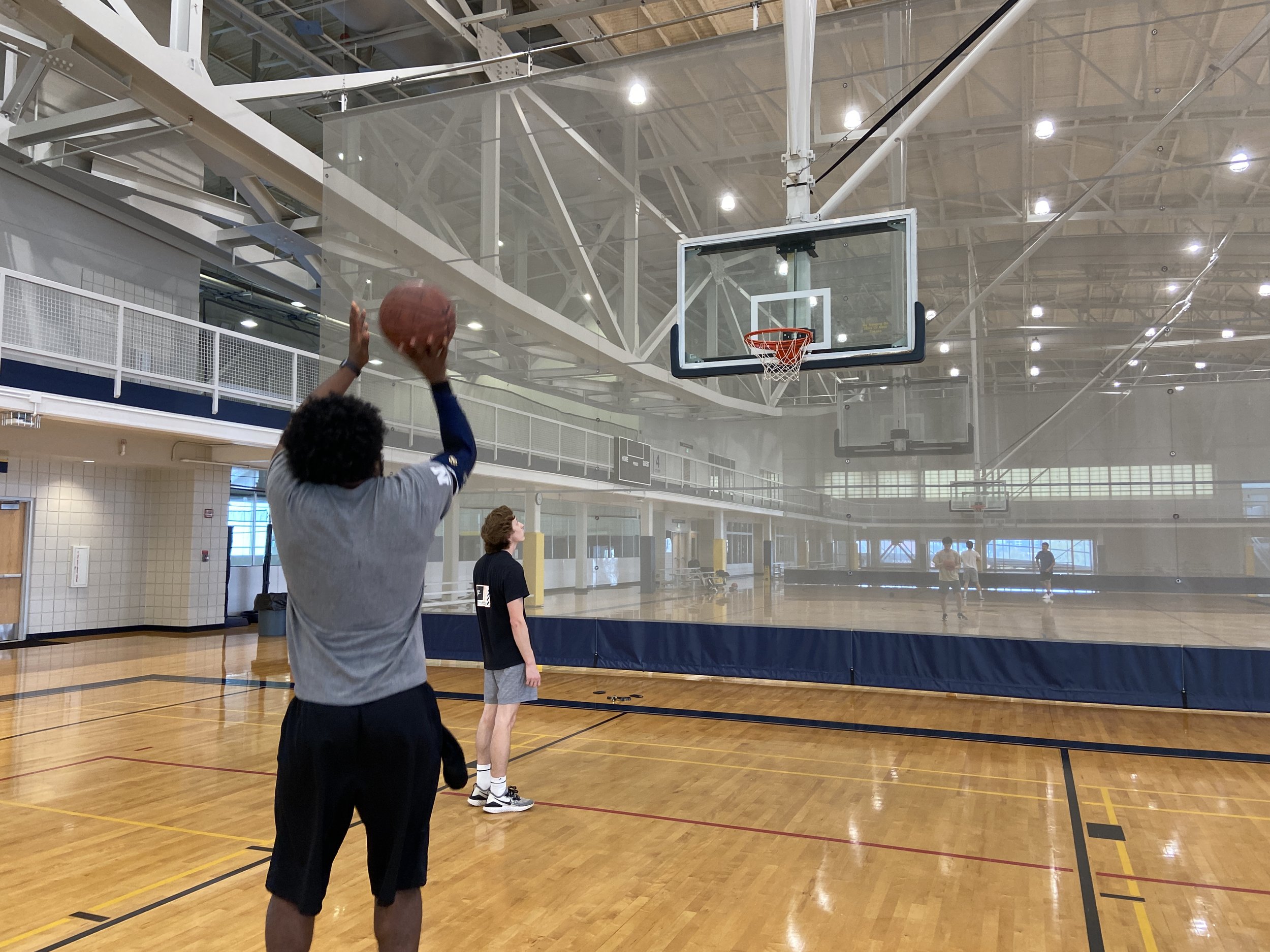
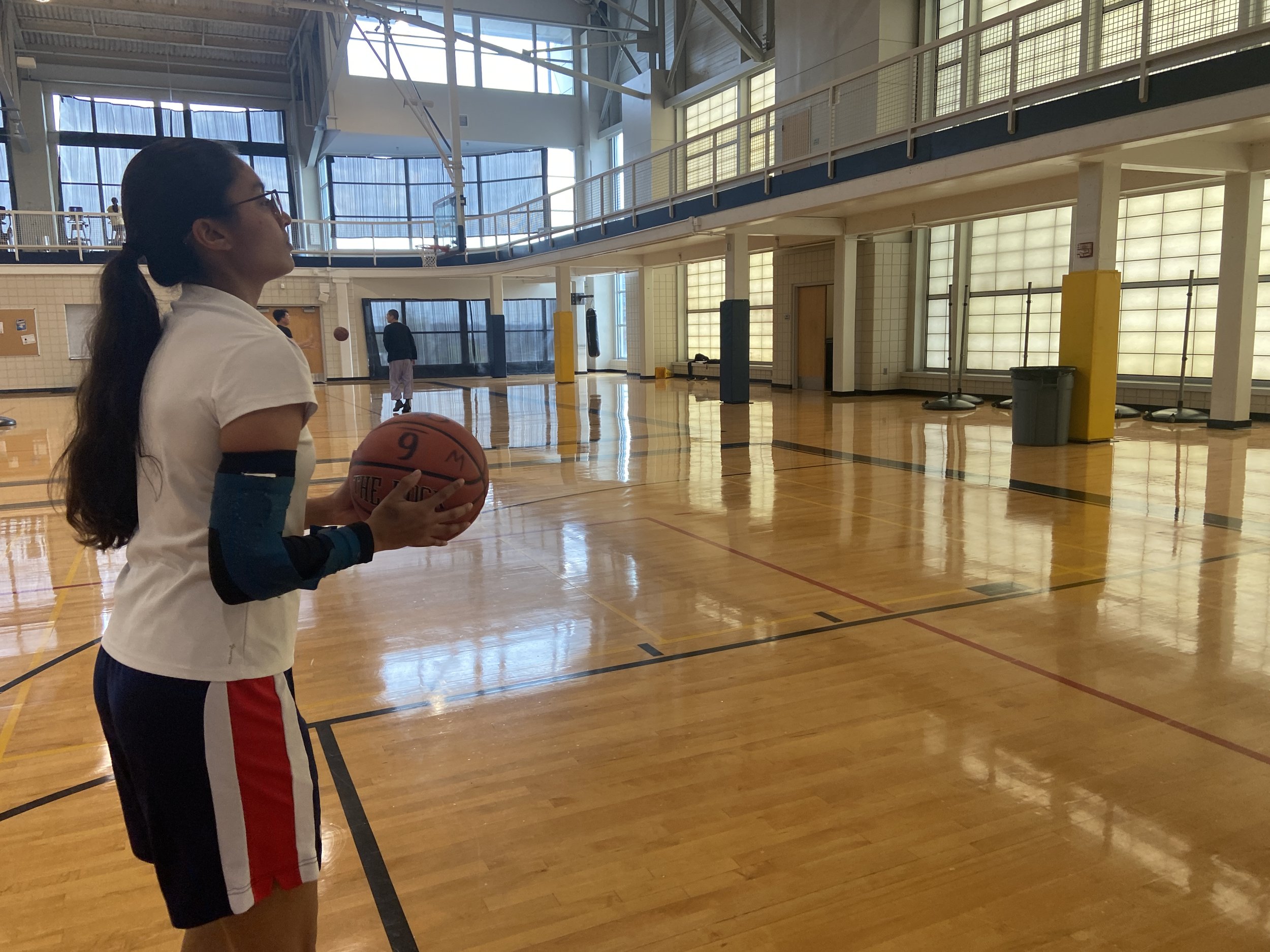
Results
Yes!
The shooting sleeve was found to be significantly more comfortable and did not interfere with shooting form.
Yes!
The smart shooting sleeve was as comfortable as the standard sleeve and did not interfere with shooting form.
Haptic and Audio
Users found that combination of feedback was the most effective, but did not see significant advantages to having visual feedback.
For a detailed overview of my design process, my Thesis Project Report is available upon request.
Photo Credits:
Andreu, Carlos Blasco, E. (2014). Universitat Politècnica de València. Ingeniería
Del Agua, 18(1), ix.https://doi.org/10.4995/ia.2014.3293
https://www.wearablex.com/pages/how-it-works

